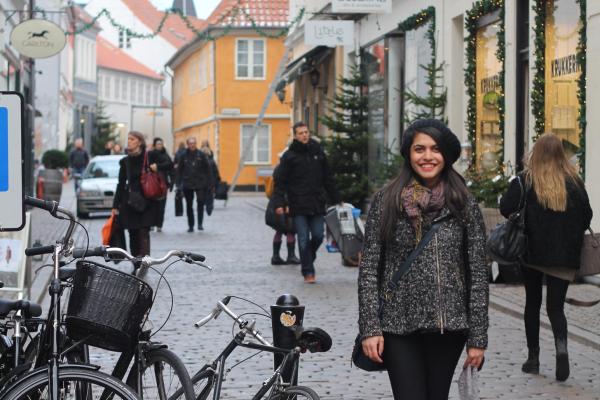Fleeting as it all too often feels, and despite the myriad of tips, pointers and advice we receive on effective time-management, I have realized that there is no “one size fits all” kit—you can only unpack all of that well-meaning advice and distill it into what works for you. That often means recognizing “student” and “tourist” can not always be conflated, and that not every item on your “to see” lists will be checked off. Just past the halfway point of my stay in Scotland, I’ve realized that doesn’t have to be a bad thing.
Perhaps worth mentioning, as a Canadian student, I was able to get away with a lighter course load (40 per cent lighter, in my case) with no compromise on credits earned. Anecdotally speaking, the workload here is significantly lower than in North America—which can only be a good thing. This has been my short answer to “How do you get any studying done?”
However, here are a few pointers on managing your precious time abroad:
1) Plan Ahead
Clichéd, maybe, but planning ahead is also indispensable advice. The crux of the matter here is that you plan, not necessarily how. At its core: a realistic budget, responsible money management and a schedule. You’ll have a good, solid grasp of your bearings and much more leeway to accommodate unexpected changes. Do your research, prioritize and keep that mind wide open.
2) Prioritize
Recognize and respect the purpose of your international stay: “Study Abroad.” It’s not a vacation, an escapade nor a six-month romantic European adventure—though elements of all three can be accommodated. I am not trampling on the notion of fun here, only iterating the fact that at the end of the day, you can prove to yourself (and the world) that you did it all; that’s the kind of success that’s a sound stepping-stone for taking on the world (quite literally).
Mark all class days and times as rigid no-go zones, allocate and religiously adhere to your study schedule, make your social commitments and plan trips around school and you will get more done on all fronts than you imagined!
3) Collaborate
If you still need a kick up your backside to keep you on track, form or join a study group! Whether you’re working on a project, studying for an exam or just simply need a healthy amount of pressure to ensure you’re not falling off track, working with others almost always does the trick. Creative juices flow, relationships are forged and there’s always the added bonus of acquiring information that you won’t find in a guide book.
4) Start early!
Don’t play catch-up, it’s never fun. We’ve all heard our fair share of mantras against procrastination; as a foreign student in a country with a different educational system and requirements, respecting your time will be reflected in all the right ways. Have your questions answered early and work to get those projects, papers and assignments out of the way. You will have only yourself to thank at the end of the term, when that final week won’t be spent scrambling to meet deadlines. Who knows—that missed trip might just fit into that sweet open spot created by your steadfast diligence.
If you’re feeling brave enough, set early deadlines—though sometimes tricky, personalized tweaks to official deadlines can work to lighten that nagging end-of-term stress. It might just give you another three days for that irresistible two-night deal to Venice!
Most importantly, manage yourself. This is your chance to make an impression on the world; you can make it an indelible one! Ask questions, seek help and enjoy yourself.
Add this article to your reading list



